Barrow Hospital Remembered
These recollections describe the hospital over a period of almost 40 years, 1963-1999. Barrow hospital has long been a divisive place, perhaps due in part to the controversial and often distressing nature of mental illness itself. The patient's account from the 1960s describes dirty wards and unbearable boredom but the other accounts seem to describe a hospital generally well-liked by staff and patients, albeit seen mostly from outside the wards.
Steve McDonagh, 1963-73 & 2016, via e-mail
“
My parents moved to No. 10 staff cottages (my father was a Senior Nursing Officer), in about 1963 from Cane Hill mental hospital in Surrey. We lived there until around 1972/ 73 after which we moved to the lower gate house on the right hand side of the bottom entrance at Glenside Hospital. Barrow was home to quite a few workers’ kids (the Henrys, the Youngs, the Vowles and Wrights spring to mind), and we used to hang out at the garages to the rear of the cottages which were on the edge of the historic woodland, home to the wild deer. The whole site was our playground and we often found ourselves talking with patients who were wandering around the grounds. Our parents warned us to be careful, especially regarding a patient known as ‘Chaser’, who got his name because he would chase you if teased – so we did and he did but never caught any of us, perhaps too medicated.
An annual highlight was the Hospital Fayre held near the cricket pitch and farm. We would also chase the Geese, climb hay stacks, eat the nuts from the trees and as much fruit as we wanted from the plum, pear and apple trees growing in the lanes and back gardens of the cottages. We would often spend time in the social club and I can remember singing Blue is the Colour (the Chelsea song), badly, with friends at the Christmas staff party. I remember vividly the bus stop hut near the canteen, the telephone box (an old square green and glass box opposite the cottages) and the shop (run by a lady called Rene, pronounced Reenee), your picture of it is the first I have seen since 1973. I used to sit on the bench half way up the hill of Wild Country Lane on my way home from school in the village. This was often a daily walk, which I’m sure would not be allowed these days for someone my age. I can also remember playing in the vast orchards and fields opposite the front of my house, which were then destroyed to make way for the bypass (necessary I suppose to save the village). [...]
I found your site via Wikipedia. A great collection of photos bringing back lots of memories, although I see none of the Day Hospital, I have some I can share post-closure if you wish but you can still get to the huts across the fields and over the fence. ”
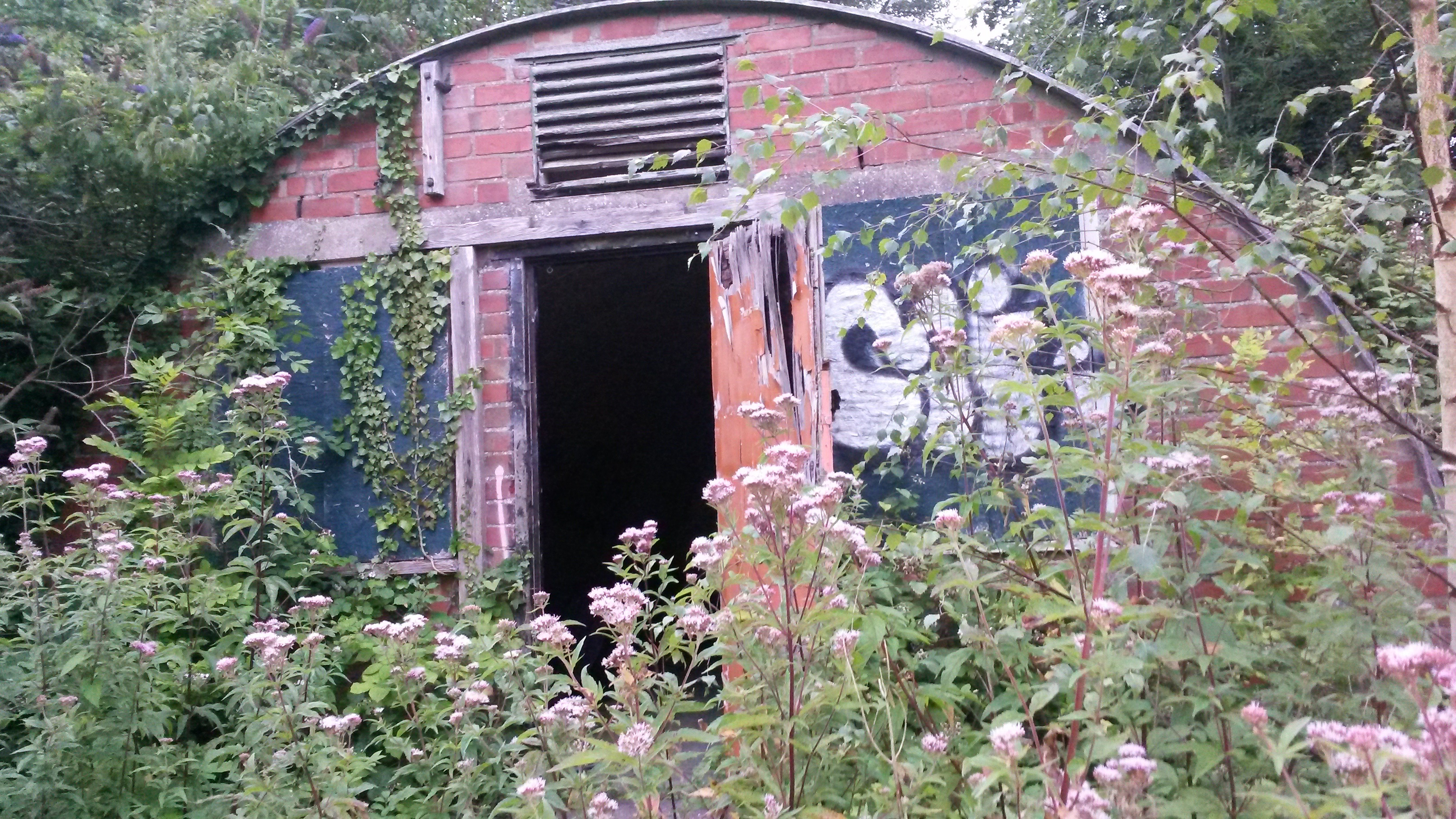 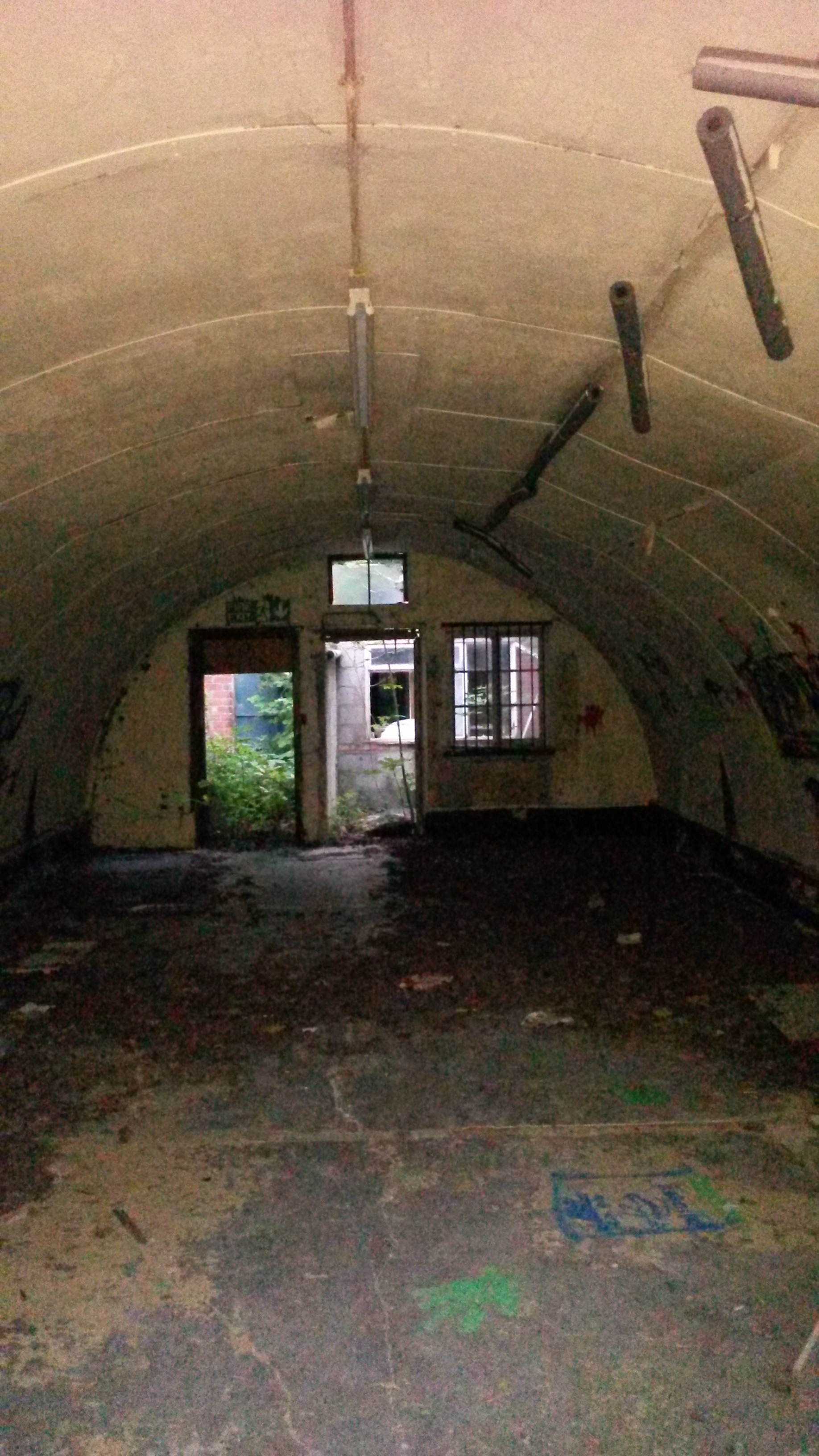
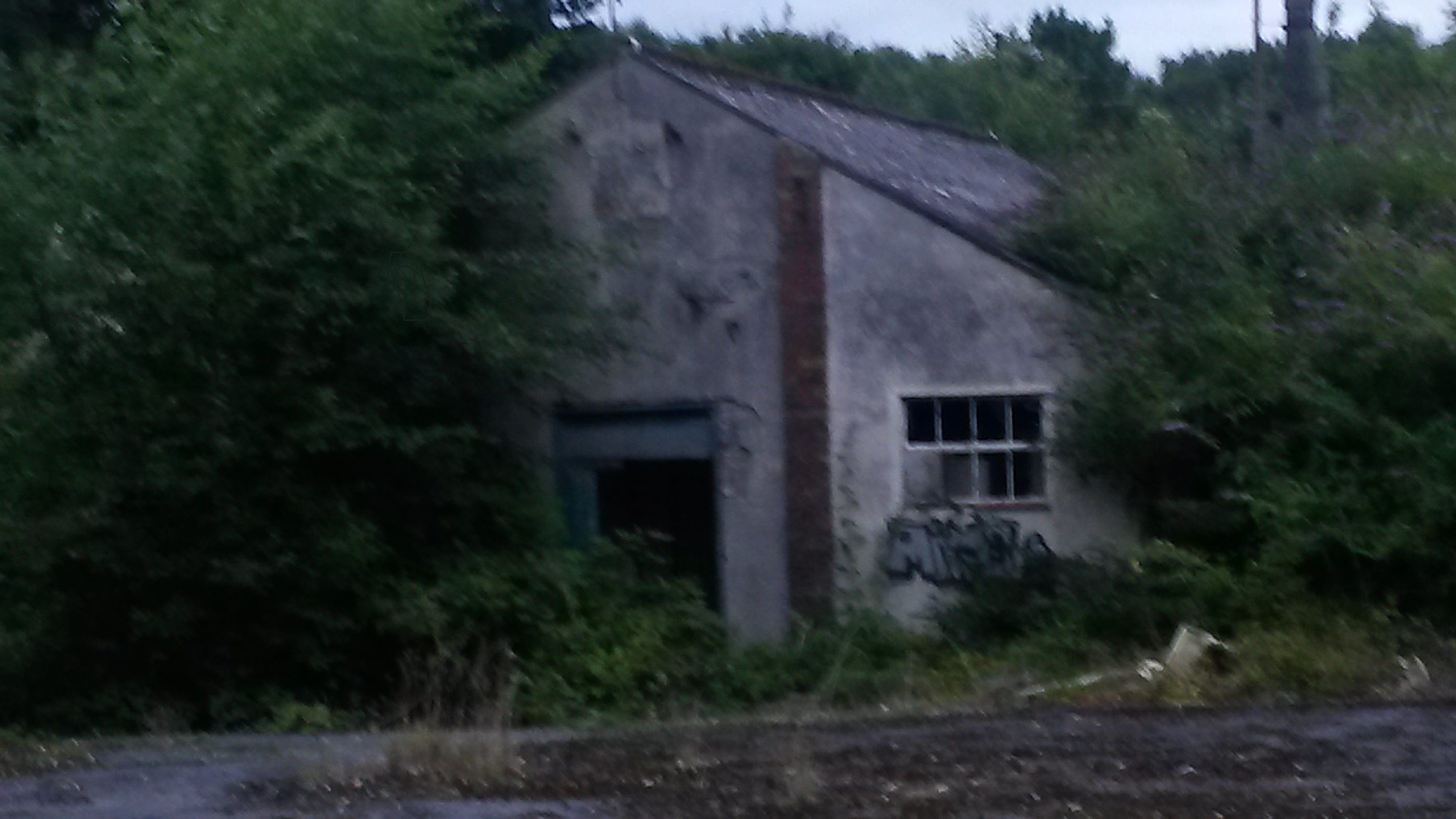
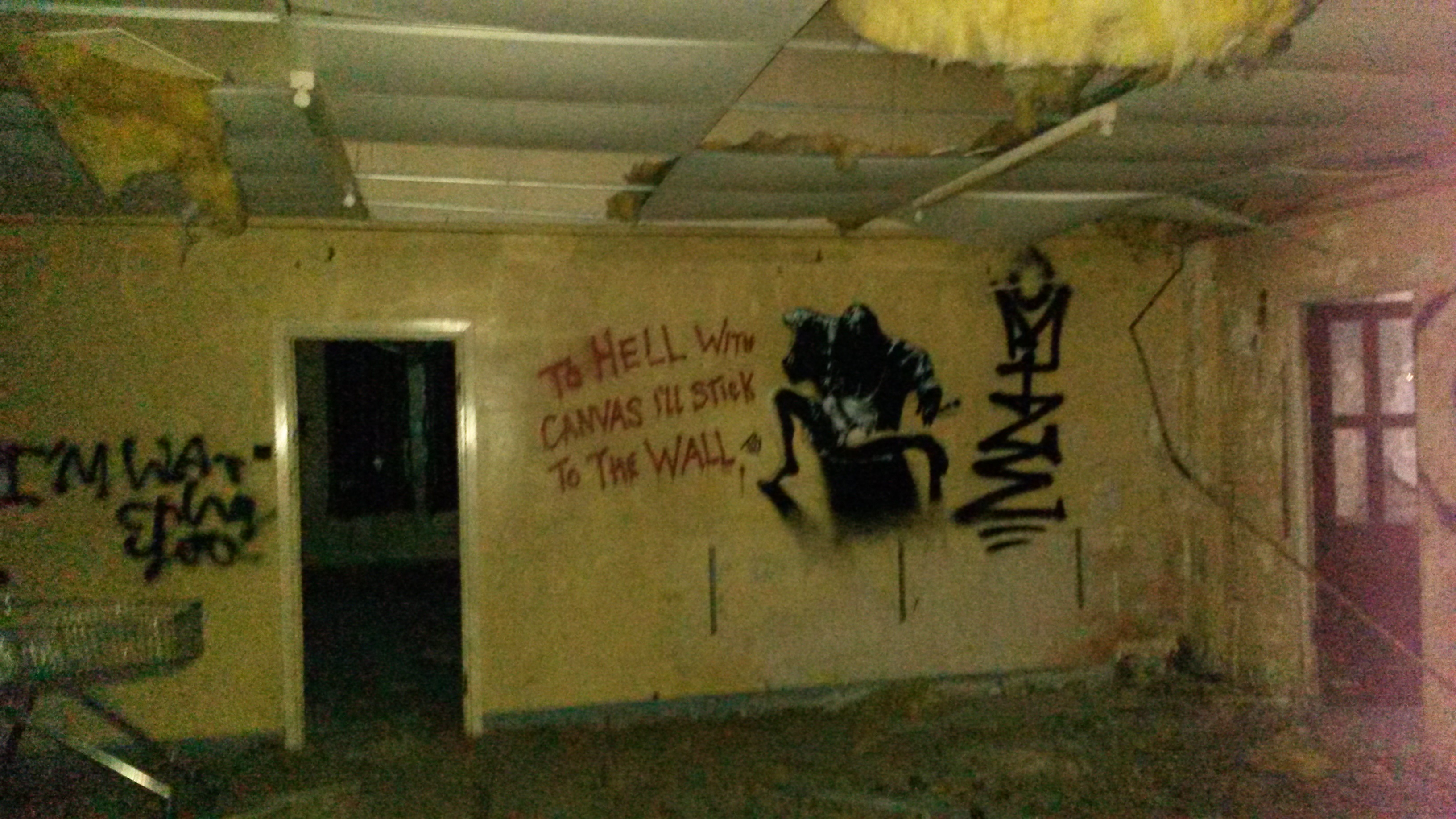 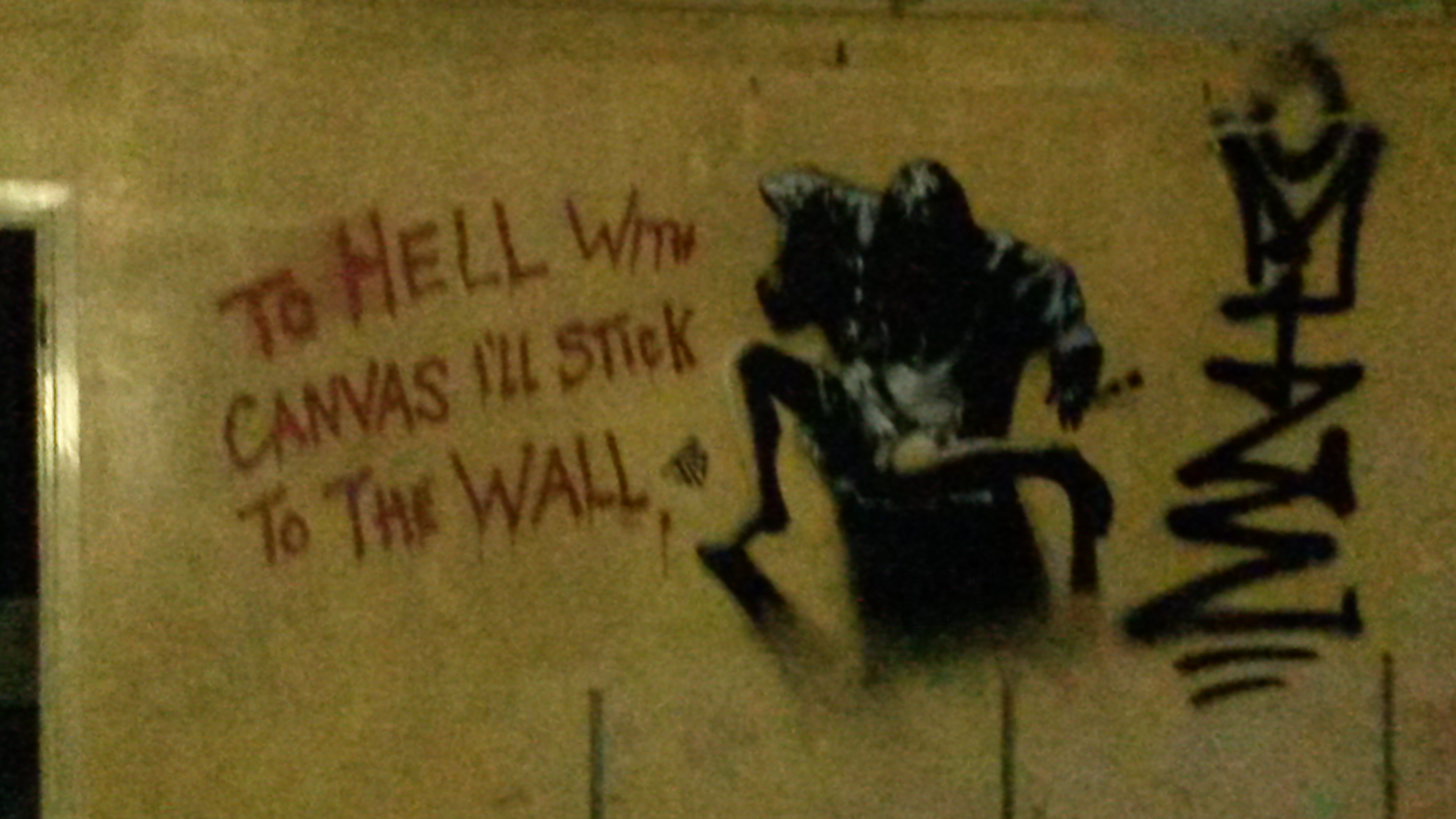
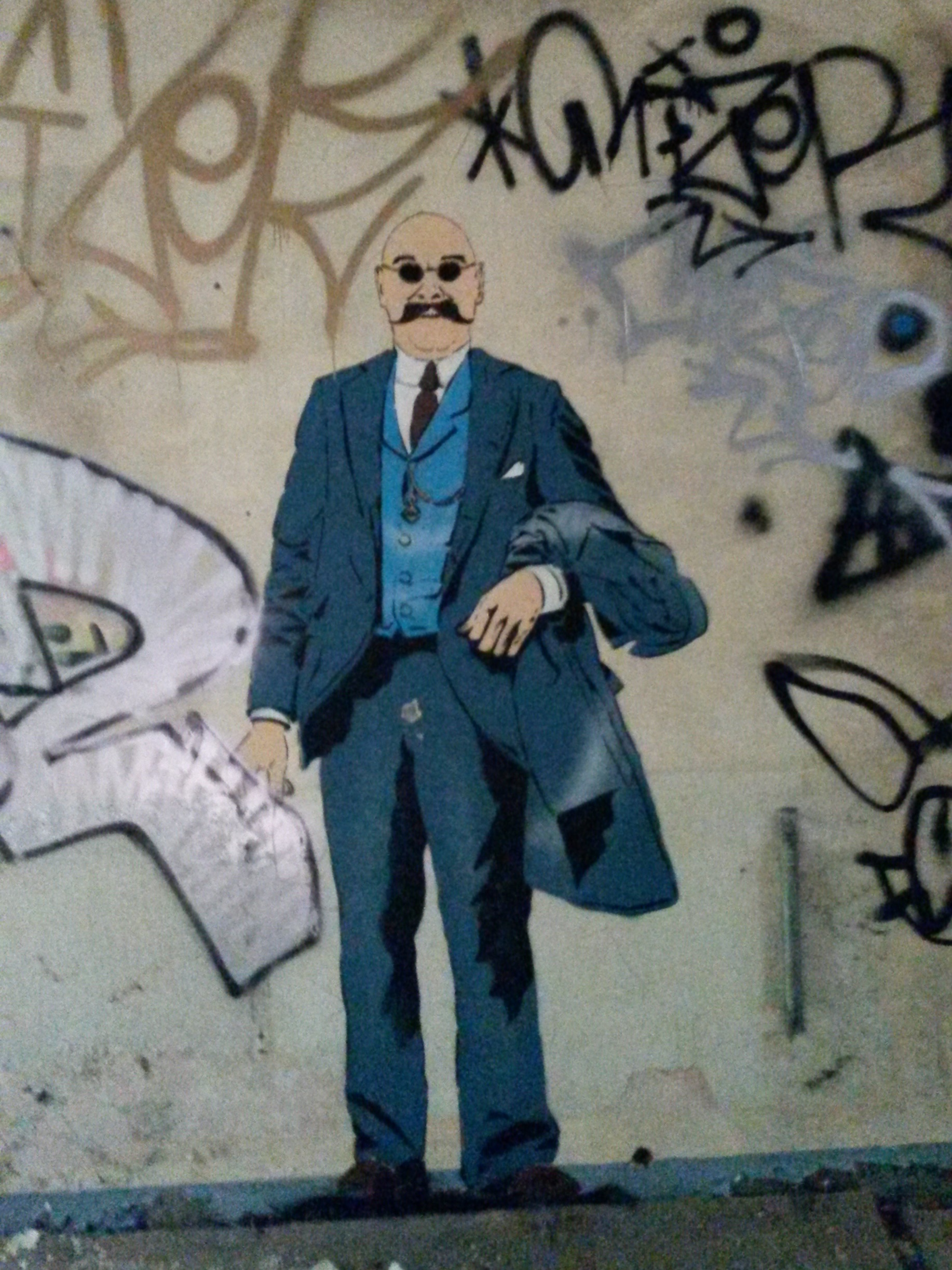
|
Judith Watson, 1965, via Andrew Roberts (studymore.org.uk)
“
I was put straight into the admission ward's locked dormitory, housing some 20 grey-haired and apparently toothless women in various states of undress. No reassurance was given that this was just a temporary measure, forced on me because the night staff had already come on duty and I couldn't be assessed until the following morning. That first night was absolutely terrifying, with constant weird cries and murmurings. At one point a patient who had got out of bed to use the communal commode lost her bearings and tried to get into bed with me.
Although the next few nights I was placed in a different, unlocked dormitory, I had to spend the whole weekend in the main part of the hospital with many very disturbed long-stay patients, only being admitted to Dundry Villa on the following Tuesday.
I found the main hospital a grim place. Common rooms consisted of urine- stained chairs set round the walls and a distinct lack of comfort overall. Washing and toilet facilities were frankly pretty disgusting. After two days in this environment, all I was concentrating on was getting home as soon as possible, but of course pleas to my family fell on deaf ears. In their eyes it was quite simple; I was unwell, therefore I needed to be in hospital. Given a few days, they said, I'd be bound to get used to my surroundings and make some friends.
[...]
Even in the slightly less formal atmosphere of the villa, the stark decor, total lack of privacy and the vast dormitories with hardly any space between beds and little room to stow one's personal possessions made for an institutional atmosphere. Washing facilities were communal, and the opportunity to take a weekly bath depended on there being a member of staff free and willing to supervise you. There was a loud bell which signalled getting-up time, and woe betide anyone who lingered in the dormitory and didn't appear for breakfast. Patients had a rota of daily tasks, mostly involving cleaning and washing up. This rota was a constant focus for disputes.
The staff seemed to concentrate mostly on maintaining a very regimented, disciplined set-up. There were few opportunities to form friendly relationships with them, and any attempt at individuality was quashed or regarded as suspect behaviour.[...]
A lot of emphasis was put on the distribution of drugs, with us lining up after each meal to receive our allotted doses, while the staff watched like hawks to make sure we swallowed the tablets [...] I was distressed to find that older patients, rather than being paid their due respect, tended to be treated like children, though admittedly many of them seemed to be too sleepy to object. I realise now, with hindsight, that quite a lot were already developing symptoms of tardive dyskinesia as a result of their drug treatment. Every week several patients went for ECT [Electro-Convulsive Therapy], appearing later with crashing headaches and memory loss which they naturally found upsetting and disconcerting.
[...]
The hospital was set in very extensive wooded grounds and after we had stabilised on our drugs, we were allowed to wander unsupervised in the vicinity of our particular women's villa, though with stern warnings about any contact with patients from other parts of the hospital.
There didn't seem to be any occupational or group therapy available at Barrow Hospital when I was there. We were pathetically grateful for any diversion. I remember being so bored that at one point I volunteered to scrub the tiled walls of the small operating theatre in the grounds, helping to clean the place up so that a long-stay patient could have his teeth extracted. The only real chance to mix with patients from other parts of the hospital was at the regular Sunday religious service, held in a pre-fabricated chapel. Though generally poorly attended, it proved a small but welcome diversion even for a professed agnostic.[...]
My stay at Barrow Hospital lasted six weeks. On coming home, it was evident that the neighbours were keeping their distance. Certainly in Bristol in 1965 there was a very definite stigma attached to being in a psychiatric hospital, with meaningful glances being exchanged whenever anyone was 'out at Barrow Gurney'”
|
Full article available here
Anonymous, 1971-82, via Wikipedia
|
“I worked at Barrow Hospital From 1971 - 1982 and it was not a hospital in decline. [...] We operated many significant firsts including managing a day Hospital near the centre of town and managing to keep former patients in the community by going out to their homes to give injections of medication and/or talking to them to help them stay out of hospital. Plus Barrow was a more condusive [sic] environment to that of Glenside Hospital which was an old fashioned Victorian locked ward Asylum whereas Barrow the patients were not locked in at either day or night [...] Only a few of the acute admission wards were segregated. Admittedly Barrow was away from activities although there were hospital buses that ran between Barrow and Glenside hospitals mainly for staff but patients were allowed to use them to go home for visits or weekends plus there was a public bus service to and from the hospital plus the standard bus services from the bottom of the road. [...] I can not say what happened after 1982 but I can say that while Miss Burke was the matron at Barrow it was kept clean and the patients [sic] needs were kept to the front” |
Anonymous, 1990s, via e-mail
“I have a pretty strong connection to the hospital as my father was once a patient there and ended up working there some time after. My grandmother also passed away there after battling illness for some time, under the care of the wonderful staff there as my dad had wished.
I spent many weekends on or around that site in the 90's, and some of my most cherished memories are ones at that hospital. Indeed, there were many Saturday nights spent at the social club that had been on the site with my father and his friends, and the other staff children that were frequently there.
The site was a lovely place to wander around, with plenty of wildlife to watch and an orchard near the site.
I can remember sitting in a clearing behind the staff cottages during the summer, toasting marshmallows on the bonfire we used to have.
I can honestly say that Barrow is the only hospital I have ever truly liked. My father would always chat with the patients and help them if they needed it. They would often wait outside my dads office window and watch the squirrels that used to go in my dads office, they would eat peanuts from a bowl on the floor, and were capable of being hand fed.
I would sometimes visit the elderly people's ward, chat to some of the patients there as well as help out if there was anything I could do.
I learnt a lot about mental illness from my time at the hospital, and as such I don't fear it as many do. Many people find hospitals grim, but Barrow had some great staff who genuinely cared about the patients they were responsible for.
The site was used for filming some parts of casualty I think it was, another place was the road to nowhere in Yate. [an unfinished dual carriageway east of Bristol]
There of course will be many accounts of people dissatisfied with the hospital, as there are about many others past or present. My experiences with the hospital were good, they helped save my father, helped my grandmother pass away peacefully, and gave me memories that I will always look back on fondly.
I was truly sad when it closed down, I wish that I had gone there and taken photos of the place before it had been demolished.”
|
Thanks are, of course, due to those who shared the above stories, especially to the those who took the time to contact me with their recollections. If you have memories of Barrow Hospital you'd like to share, why not contribute?
Back to Barrow Hospital
-
Home
| |
The Derelict Miscellany: website and all content © D. A. Gregory unless stated to be otherwise.
|